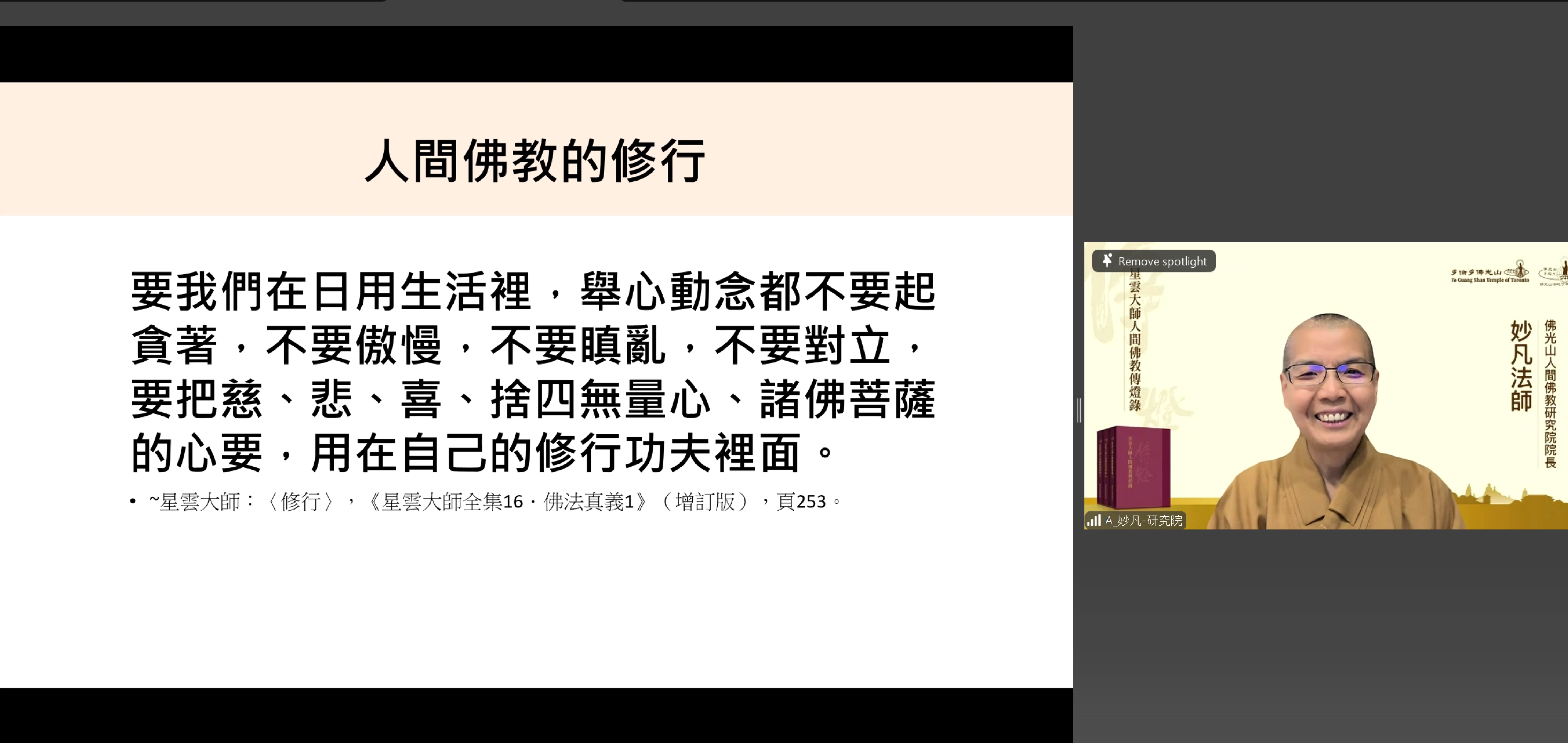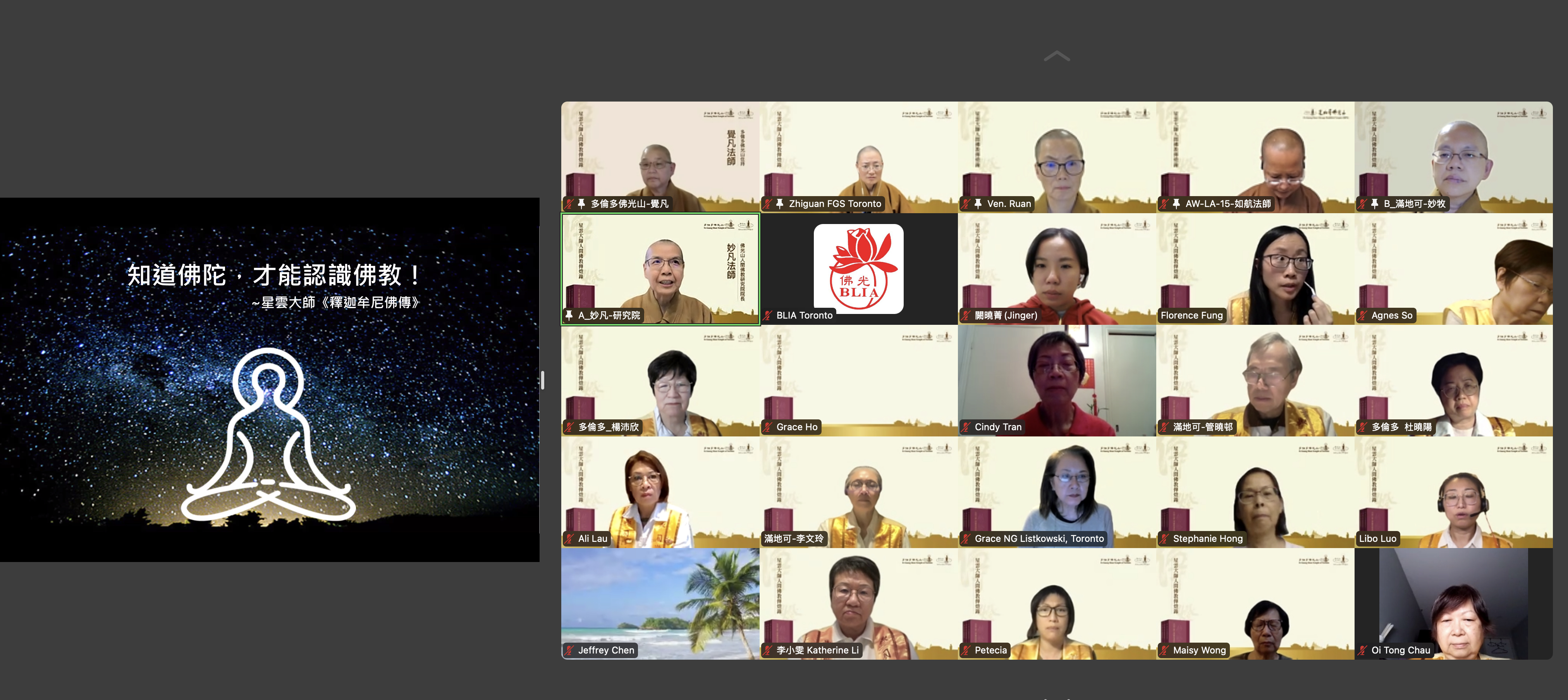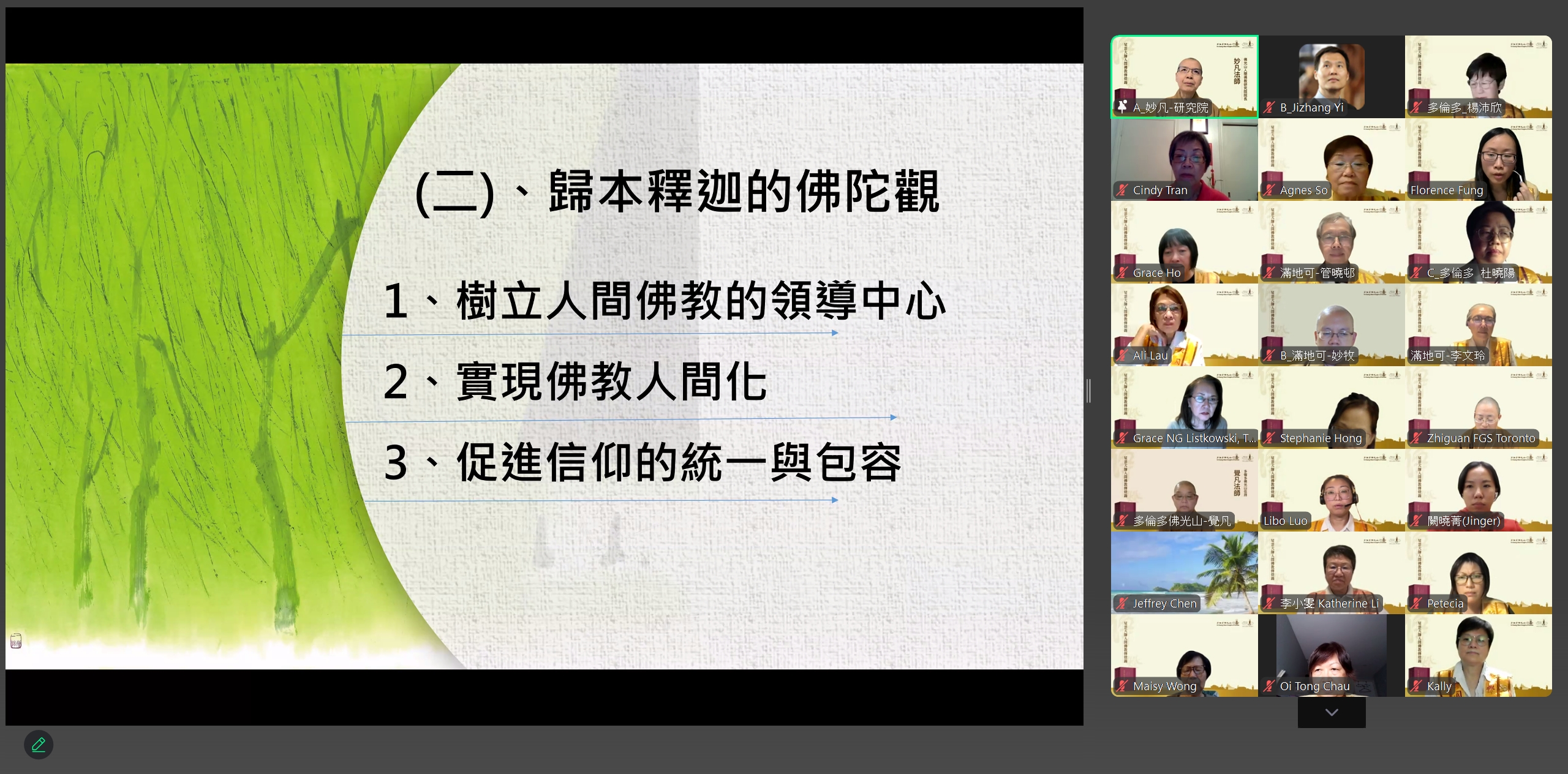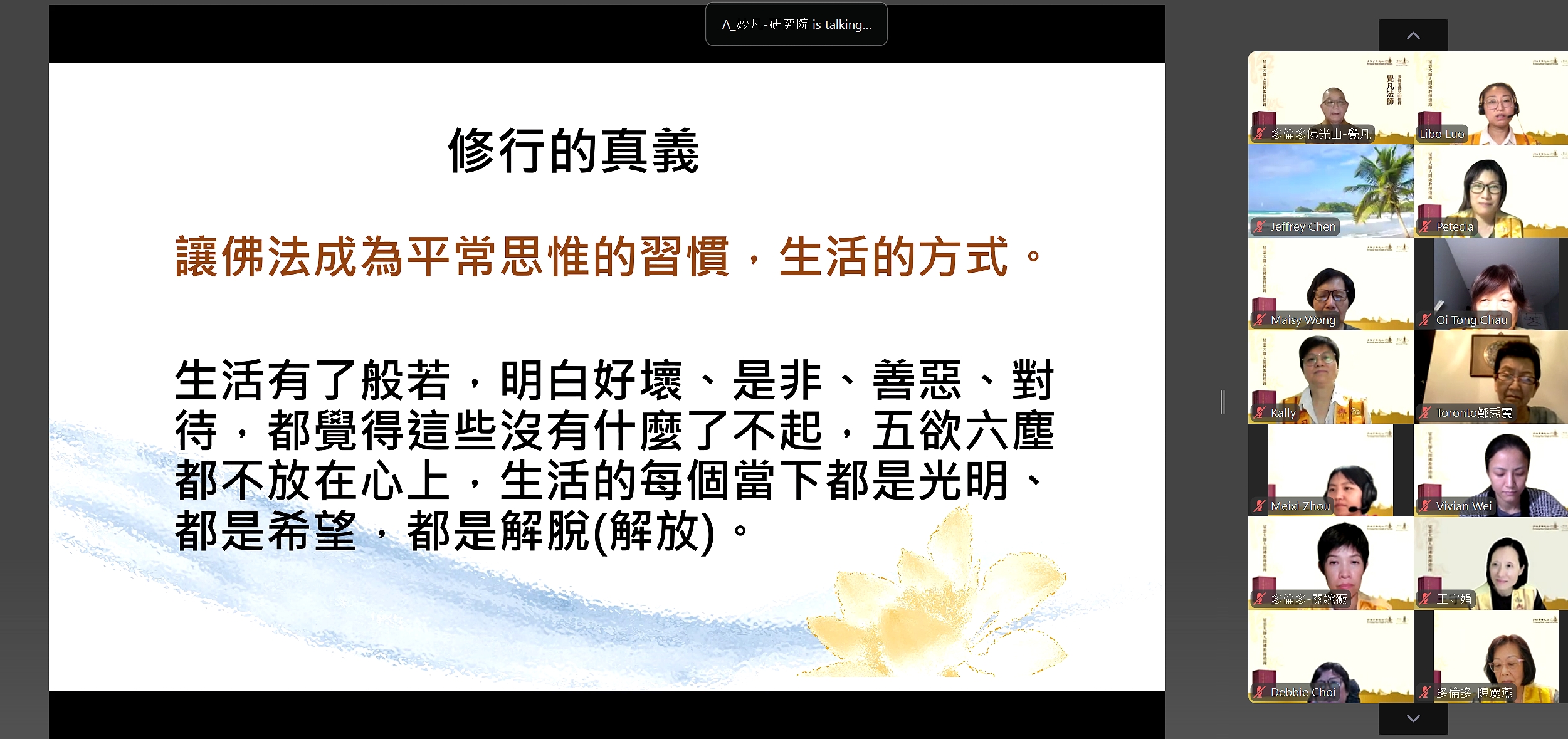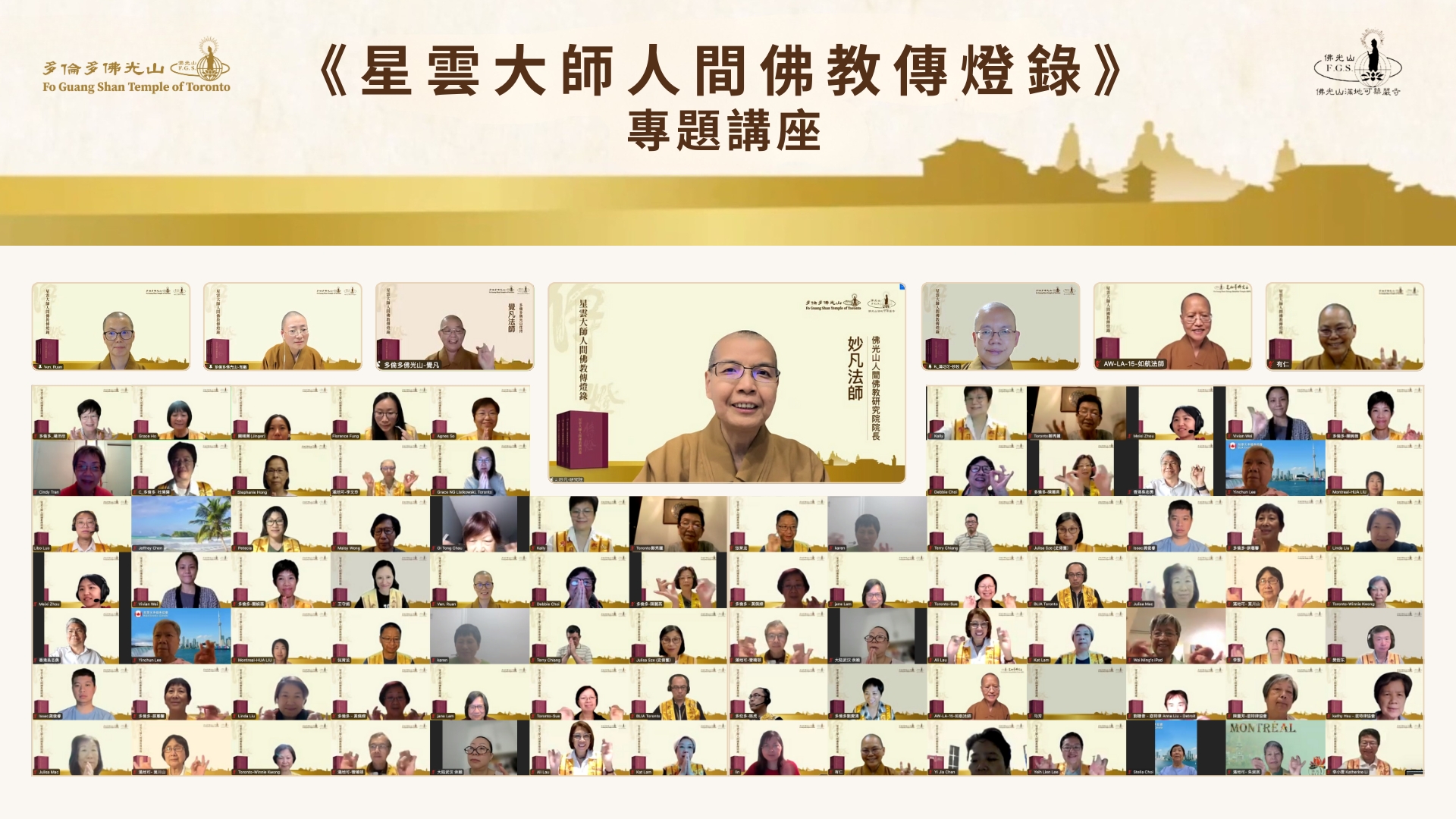
On July 31, Fo Guang Shan Temple of Toronto hosted the second session of the Humanistic Buddhism Transmission Series, part of the Canadian segment of a global lecture initiative organized by the Fo Guang Shan Institute of Humanistic Buddhism (FGSIHB). The online session was led by Venerable Miao Fan, Chancellor of FGSIHB, and attracted nearly 200 participants from Toronto, Montreal, Los Angeles, New York, and other regions.
In her lecture, Venerable Miao Fan guided attendees through Chapter One: Systematically Constructing the Theoretical Framework of Humanistic Buddhism. Drawing from the vision of Venerable Master Hsing Yun, she emphasized that Humanistic Buddhism is firmly rooted in core Buddhist doctrines and a clear, faithful understanding of the Buddha’s life and teachings.
Citing The Biography of Sakyamuni Buddha, Venerable Miao Fan highlighted how Venerable Master Hsing Yun depicted the Buddha not as a deity, but as an awakened human being. This portrayal underscores the importance of developing an authentic and accurate understanding of Buddhism—beginning with understanding the historical Buddha as a person who cultivated wisdom and compassion to achieve enlightenment.
The lecture delved into fundamental concepts such as Buddha-nature, moral conduct, and equality. Venerable Miao Fan stressed that genuine liberation comes through the practice of wholesome deeds and the embodiment of the Four Immeasurable Minds: loving-kindness, compassion, joy,and equanimity. “Even the best teachings cannot change us without practice,” she reminded listeners, reinforcing the importance of integrating Dharma into everyday life.
Venerable Chueh Fan, Abbess of Fo Guang Shan Temple of Toronto, offered her gratitude for the teaching and emphasized that this foundational chapter provides vital guidance for applying Humanistic Buddhism in the modern world. She reflected on how Venerable Master Hsing Yun’s systematic approach addresses both spiritual cultivation and contemporary social challenges.
In response to the question, “Where is the Buddha?”, Venerable Miao Fan introduced the concept of the eternally abiding Dharma body. “The Buddha is wherever there is faith, mindfulness, and practice,” she affirmed. “Wherever you believe the Buddha is, there He will be.”
Closingthe session, Venerable Miao Fan encouraged participants to adopt the “New Method of Cultivation” advocated by Venerable Master Hsing Yun—practicing with positivity, wisdom, and Bodhicitta. Through vivid stories and reflections, she reminded attendees that awakening begins with mindfulness, compassion, and the sincere aspiration to benefit others.

